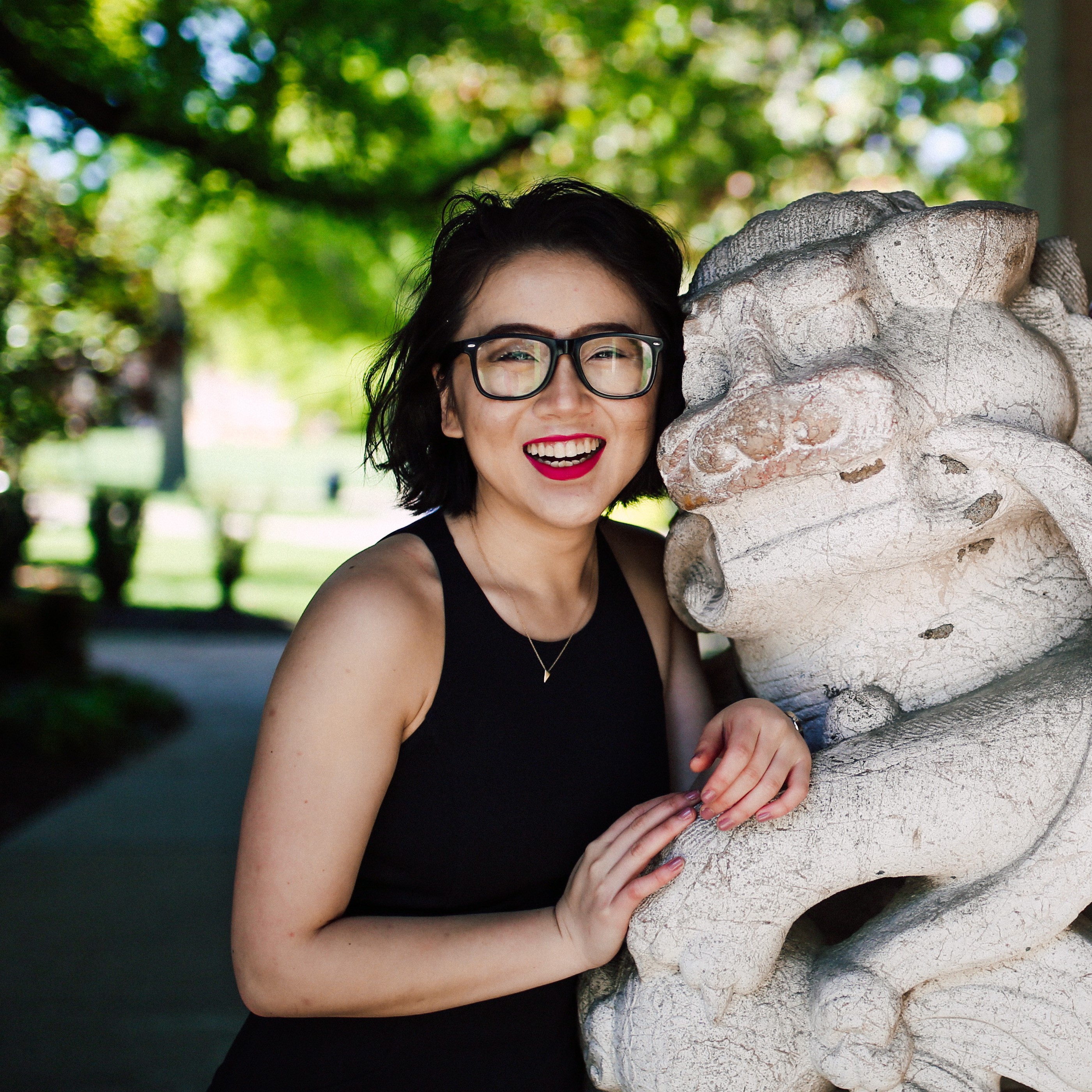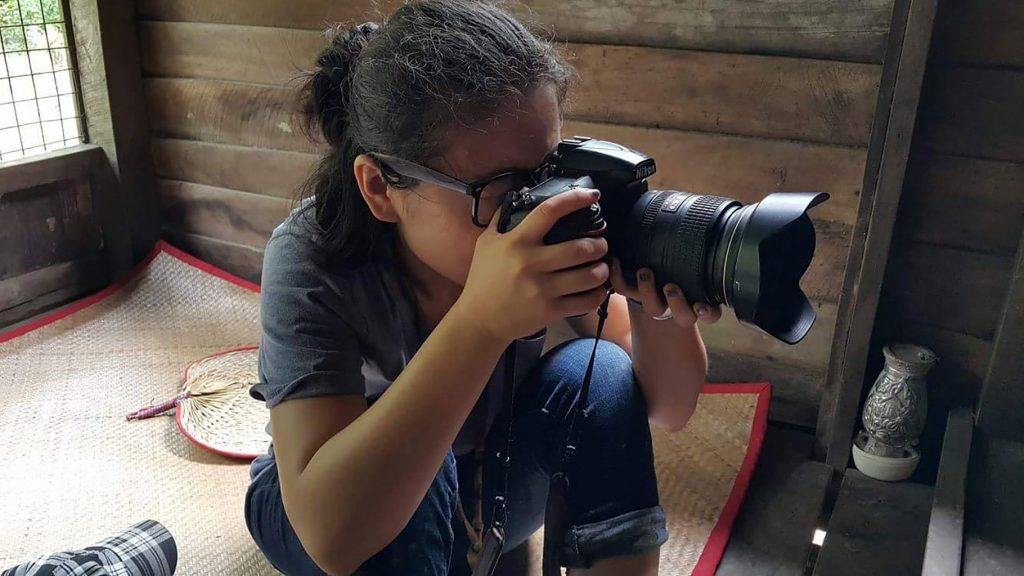Published on March 21, 2018
Siyu Lei spent many nights during the spring of 2017 at her dining room table in Yangon, Myanmar. It was the middle of monsoon season in Myanmar, which meant many nights without power. Nevertheless, Lei stared at her laptop monitor.
“Most nights I couldn’t think of a word to type,” she says.
Lei had left her home in China to study in the United States and then work in Myanmar. Now she was searching for the correct words to complete an application for the Schwarzman Scholarship, which would take her back home.
Originally from Zhengzhou, Henan, in Central China, Lei is an only child raised by her parents to be independent. She attended boarding school starting in the seventh grade and spent her junior year of high school as an exchange student in the United States, near Fort Worth, Texas.
“Accepting ambiguity and being flexible to changes are necessary strengths to handle the dynamic challenges we are facing today.”
She recalls landing at the airport in Texas, noticing that things looked a little too big. “It was Texas, after all,” she says. As Lei became accustomed to the U.S., she found more similarities than differences between her home country and the U.S.
“The way our minds process things, how my host family guardians would educate their only child and many more incidents bared resemblance to my experience prior to coming to the States.
She admits that she was far from fluent in English. Having been thrown into an environment where she did not understand half of what was being said taught her to be versatile. That experience made returning to the U.S. to attend college at the University of Missouri easier.
“All that traveling away from home made the transition (to MU) not as challenging as some others might experience,” Lei says. “It made going to Mizzou and pursuing a journalism degree a possibility.”

Lei was involved in various TV productions and radio programs and she served on the school newspaper during the year spent in Texas. She knew she wanted to pursue journalism and an Internet search led her to the Missouri School of Journalism. She spent time as a producer and host with KBIA while at Mizzou before graduating in May 2016 with degrees in journalism and economics.
Lei now lives in Myanmar after earning a fellowship through Princeton in Asia (PiA), whose mission is to “foster mutual appreciation and cultural understanding by connecting service-minded graduates and partnering organizations in Asia through immersive work experiences.” As a PiA fellow, Lei reported stories on rural Myanmar for Proximity Designs, a social enterprise in Yangon. After a year in the program, she landed a job with a digital media agency where she began working in September.
The multi-faceted day-to- day life in Myanmar is not what she expected to encounter. For Lei, “a switch flipped on” as she quickly realized that the portrayal of Myanmar presented in the media was not what she found.
Prior to arriving in Myanmar, her impression of the country revolved around its long- lasting civil war and its lack of economic development, a perspective widely shared among the media in both China and the U.S.
As a trained journalist, Lei understands the limited resources and interest media organizations have in covering a country so far removed from the U.S.
There’s no burning reason to report on a foreign country unless something bad is happening there,” she says. “This is an idea shared by American and Chinese media alike. The problem is, when the media become our main, or oftentimes only, source to see and understand the world, we inevitably view things from a very narrow telescope and start to miss context, nuances and details.”
Lei has witnessed many things that this narrative does not include, such as the revitalization of a newly opened-up city and an ambitious attempt at education reform.
“The way people consume information is drastically different from people in the States, or just about anywhere else,” she explains. “Creating innovative ways to deliver information and shape people’s daily decisions is a fascinating thing that I am hoping to learn more about.”
While visiting China last February, Lei met up with Mizzou alumnus and 2016-17 Schwarzman Scholar Anurag Chandran, whom she had known at MU. Chandran encouraged Lei to consider the Schwarzman Scholarship.
The Schwarzman Scholars Program, which was inspired by the Rhodes Scholarship, was created to respond to the geopolitical landscape of the 21st Century.
Lei began pursuing the opportunity, which led to the nights at that dining room table, working on the application for the scholarship while the monsoons made their presence felt.
“Writing any application demands digging through the past and exploring oneself, and this one is no exception,” Lei says. “I don’t enjoy talking about myself, so much of my thought went into finding the balance between positioning my experience and abilities in an appealing manner, while making the essays re ect who I am as an individual.”

She finished the application, participated in an interview and, in the fall of 2017, learned she had been selected for the scholarship.
The program will give Lei the opportunity to develop leadership skills and professional networks through a one-year master’s degree at Tsinghua University—one of China’s most prestigious universities. Schwarzman Scholars live and study on the campus of Schwarzman College, a facility where all classes are in English, with an intensive Chinese language learning component as part of the curriculum.
Her years out of China forced Lei to become accustomed to new ways of life, meaning she had to “unlearn China.”
“Accepting ambiguity and being flexible to changes are necessary strengths to handle the dynamic challenges we are facing today,” she says. “I expect Schwarzman to be a platform where more intellectual debates, strategic thinking and information synthesizing will take place.”
By the time she arrives back in China, she will have spent two years working in Myanmar. She stated in her Schwarzman application that she hopes to re-observe China with her newly gained viewpoint, examining how its development model can shape today’s world and how the ever-changing world can reformulate China’s views on others.
In the long term, Lei wants to ght for the emerging countries around the world.
“The future of global prosperity relies on them,” she wrote in her Schwarzman application. “I look forward to throwing myself into multinational economic development programs that directly a ect the lives of many.”